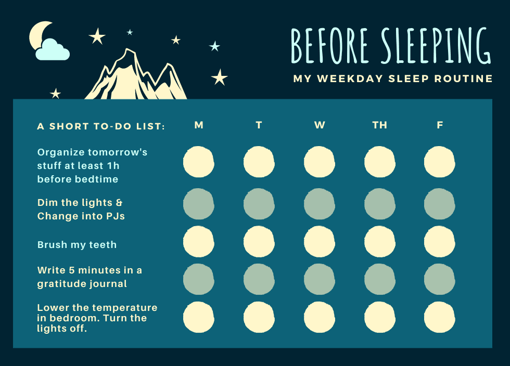Our brains are the most complex and remarkable organs in our body. They control our thoughts, emotions, and movements, and are responsible for all our cognitive and sensory functions. However, just like any other part of our body, our brains require regular exercise and nourishment to function optimally. In this article, we will explore 10 natural ways to improve brain health and strengthen your mind. From brain exercises to brain-boosting foods, we will provide practical tips to help you unlock your brain's potential and boost cognitive function. So, let's get started and learn how to take care of our most important organ - our brain.
How to improve brain health naturally?
 Improving brain health is a multifaceted approach that involves adopting a healthy lifestyle. While it may be tempting to make all the changes at once, it's important to start with one lifestyle factor first and gradually incorporate others over time. Research suggests that regular physical exercise has the most significant impact on brain health. Exercise promotes the growth of new brain cells and improves cognitive function, and numerous studies have linked it to reduced risk of cognitive decline. In addition to exercise, a balanced diet rich in nutrients such as omega-3 fatty acids, antioxidants, and vitamins is essential for brain health. Adequate sleep is also crucial for optimal brain function, as it helps the brain consolidate memories and recharge. Finally, managing stress through techniques such as meditation, deep breathing, and yoga can improve brain health by reducing inflammation and improving overall mental health. By starting with regular exercise and gradually incorporating other healthy lifestyle factors, you can improve your brain health and enhance cognitive function for years to come.
Improving brain health is a multifaceted approach that involves adopting a healthy lifestyle. While it may be tempting to make all the changes at once, it's important to start with one lifestyle factor first and gradually incorporate others over time. Research suggests that regular physical exercise has the most significant impact on brain health. Exercise promotes the growth of new brain cells and improves cognitive function, and numerous studies have linked it to reduced risk of cognitive decline. In addition to exercise, a balanced diet rich in nutrients such as omega-3 fatty acids, antioxidants, and vitamins is essential for brain health. Adequate sleep is also crucial for optimal brain function, as it helps the brain consolidate memories and recharge. Finally, managing stress through techniques such as meditation, deep breathing, and yoga can improve brain health by reducing inflammation and improving overall mental health. By starting with regular exercise and gradually incorporating other healthy lifestyle factors, you can improve your brain health and enhance cognitive function for years to come.
Here are 4 evidence-based and natural ways to improve brain health.
1. Regular Exercise
Physical exercise is key to maintaining your brain health. One reason is because exercising boosts blood flow to the brain. The Physical Activity and Brain Health Study conducted at the University of Palermo, Italy has shown the importance of physical activity on good brain health highlighting the fact that physical activity contributes to delaying the brain's aging and degenerative disease such as Alzheimer's and diabetes and improves cognitive abilities and memory.
Building muscle is also key to brain health by way of improving heart-health. Numerous studies have shown that aerobic exercise combined with strength training is good for the heart's health. A healthier heart pumps blood more efficiently and effectively, therefore, providing better blood flow to the brain.
 How much exercise is the right amount for brain health? According to Mayo Clinic, performing strength training exercises for all major muscle groups at least two times a week and make sure to get at least 150 minutes of moderate aerobic activity or 75 minutes of vigorous aerobic activity a week is a good amount.
How much exercise is the right amount for brain health? According to Mayo Clinic, performing strength training exercises for all major muscle groups at least two times a week and make sure to get at least 150 minutes of moderate aerobic activity or 75 minutes of vigorous aerobic activity a week is a good amount.
Exercise has been shown in research to have a positive impact on brain health. For instance, a study done at the University of British Columbia revealed that regular exercise can change the brain to enhance memory and thinking skills. In fact, exercise is considered an effective way to sharpen the brain! One of the simplest goals for improving brain health and longevity is to walk vigorously for at least 30 minutes a day, as recommended by leading brain health psychiatrist, Dr. Daniel Amen. Incorporating this moderate physical activity into your daily routine can provide numerous benefits for your brain and overall health.
2. A Balanced Diet
 Research has consistently shown that maintaining a healthy diet can significantly improve both physical and cognitive performance. In fact, a healthy diet can have a positive impact on mental health and reduce the risk of chronic diseases. Certain foods, commonly known as brain foods, are linked to better brainpower and can preserve brain function while slowing down mental decline.
Research has consistently shown that maintaining a healthy diet can significantly improve both physical and cognitive performance. In fact, a healthy diet can have a positive impact on mental health and reduce the risk of chronic diseases. Certain foods, commonly known as brain foods, are linked to better brainpower and can preserve brain function while slowing down mental decline.
Examples of brain foods include green leafy vegetables, fatty fish, and berries. These foods are high in nutrients that have been shown to improve cognitive function. Coffee and dark chocolate are also considered brain foods due to their caffeine and antioxidant content, which can boost overall mood and ward off Alzheimer's.
ALSO READ
What Foods Are Good And Bad For the Brain?
Foods high in vitamin C, such as citrus fruits and bell peppers, have also been linked to improved cognitive performance. Plasma Vitamin C Concentrations and Cognitive Function: A Cross-Sectional Study, higher vitamin C levels in the blood were associated with better cognitive performance in tasks requiring focus, attention, and decision-making skills. Vitamin C is a powerful antioxidant that fights cell damage, including damage to brain cells.
Eggs, especially high-quality ones, are another great source of brain food. They provide several B vitamins and choline, which are essential for regulating mood and promoting proper brain function and development. Nuts, such as almonds and walnuts, are also beneficial for the brain due to their vitamin E content. Vitamin E protects cells against free-radical damage and helps to slow down mental decline.
Incorporating these brain foods into your diet can have significant benefits for your brain health and overall well-being.
3. Adequate Sleep
 Getting enough sleep is crucial for good brain health. Unfortunately, many people struggle with getting enough quality sleep. There are several reasons why people may not be getting enough sleep, including stress, poor sleep habits, sleep disorders, and even environmental factors such as noise or light pollution.
Getting enough sleep is crucial for good brain health. Unfortunately, many people struggle with getting enough quality sleep. There are several reasons why people may not be getting enough sleep, including stress, poor sleep habits, sleep disorders, and even environmental factors such as noise or light pollution.
Dr Sharon Sha further referenced the National Institutes of Health Study that highlights that quality sleep leads to less build-up of the amyloid proteins associated with Alzheimer's disease, possibly because those proteins are flushed during sleep. Through studies like this one, researchers are coming to understand why poor sleep is connected to cognitive decline.
Research has shown that it can take several weeks of consistently practicing good sleep hygiene and implementing evidence-based strategies, such as establishing a consistent sleep routine and creating a sleep-conducive environment, to see improvements in sleep quality. Additionally, engaging in relaxation techniques such as meditation or deep breathing exercises has been shown to improve sleep quality over time. It is important to be patient and persistent with these strategies in order to achieve long-lasting improvements in sleep.

READ ALSO:
Ways to Better Sleep - Learn What Really Works
4. Stress Management
Stress can have a negative impact on brain health and cognitive function. Fortunately, there are a variety of evidence-based stress management techniques that can improve brain health and cognitive function. Meditation, for example, has been shown to increase gray matter volume in the brain, which is associated with better cognitive function.
.png?width=562&height=374&name=NFT-Benefits%20of%20%20mindfulness%20meditation%20(2).png) As Intention and Your Brain: The Science of Meditation demonstrates, meditation activates the left hemisphere of the brain, which is responsible for controlling speech, comprehension and writing. These changes were studied through using EEG brainwave tracking and fMRI imaging to see the brain regions activated through meditation.
As Intention and Your Brain: The Science of Meditation demonstrates, meditation activates the left hemisphere of the brain, which is responsible for controlling speech, comprehension and writing. These changes were studied through using EEG brainwave tracking and fMRI imaging to see the brain regions activated through meditation.
Deep breathing exercises can also help to reduce stress and improve brain function by increasing oxygen flow to the brain. Similarly, yoga has been shown to have a positive impact on brain function and cognitive performance by reducing stress and improving blood flow to the brain.
These stress management techniques not only improve brain health and cognitive function, but can also have a positive impact on overall mental and physical health.
If you want to improve your brain health and unlock your brain's potential, start by incorporating one or more of the natural ways discussed in this article into your daily routine. You can begin with something as simple as taking a 30-minute walk every day, adding more brain foods to your diet, or setting a consistent sleep routine. Remember, improving your brain health is a gradual process, so don't be discouraged if you don't see results immediately. Start small, be consistent, and stay committed to your goals. Your brain is your most important organ, and by taking care of it, you can enhance your cognitive function and improve your overall quality of life. So, let's get started and take the first step towards a healthier brain today!



